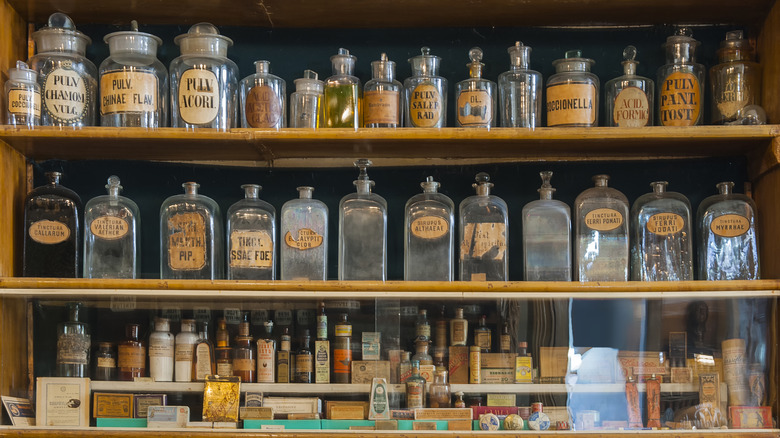The Real Reason North Dakota Doesn't Allow Chain Pharmacies
In most areas of the United States, customers can just pop down to the local chain pharmacy to pick up a prescription, buy a bottle of aspirin, or otherwise find any number of useful incidental items commonly sold at a drug store. In one state in particular, though — North Dakota — there are no national or regional pharmacy chains, save one: CVS Pharmacy and Thrifty White Drug. CVS is allowed in the state on a technicality, since the company bought Thrifty White Drug in 2006, with several locations already operating in North Dakota prior to the passage of an anti-chain pharmacy law in 1963, according to Bismarck Cafe.
Otherwise, North Dakota is the only state in the union where Walmart — or any big-box retailer, for that matter — is prohibited by law from operating a pharmacy, according to Drug Topics. And even though they're common elsewhere in the U.S., there are also no Walgreens able to fill prescriptions in The Peace Garden State. The controversial anti-corporate pharmacy law was passed originally to protect consumers and to keep pharmacies locally owned. Opponents of the law, however, say the net effect has been quite the opposite.
The law drives up prices
According to NPR, North Dakota law states that any pharmacy must be at least 51% owned by an actual pharmacist. The rationale behind the law is that pharmacist-owned outlets will provide better service to the customer, and that the law would protect small-business owners from corporate monopolies. Those opposed to the law — and there are many — argue that prohibiting chain pharmacies only hurts the average consumer, reducing competition, and therefore driving up prices.
One such opponent wrote in the Bismarck Cafe that repealing the North Dakota law could lower the price of prescription medications in the state and that there's very little evidence that pharmacies, chain or otherwise, make all that many mistakes when dispensing medications. Furthermore, it's argued that chain pharmacies would not immediately invade the sparsely populated state but instead, target the relatively urban areas, letting local pharmacies continue catering to their rural clientele.
These assertions are backed up by analysis from the Kaiser Family Foundation, which reflected that as of 2004, North Dakotans do, in fact, pay more for their drugs than in neighboring states. Nevertheless, chain pharmacies continue to be prohibited within the North Dakota state line despite repeated attempts to repeal the law.

